The Large Skipper is the most widespread Skipper butterfly found in the British Isles.
It’s resident in all counties as far north as the southern regions of Scotland.
In mainland Europe the Large Skipper is also well distributed, its range extending from the northern half of Spain, as far north as southern Scandinavia and eastwards to Russia.
Identification
The Large Skipper has a wingspan of between 33-35 mm.
The female is slightly larger than the male.
The background colour is orangy/yellow with brown shading in the outer margins.
The male has a dark sex brand.
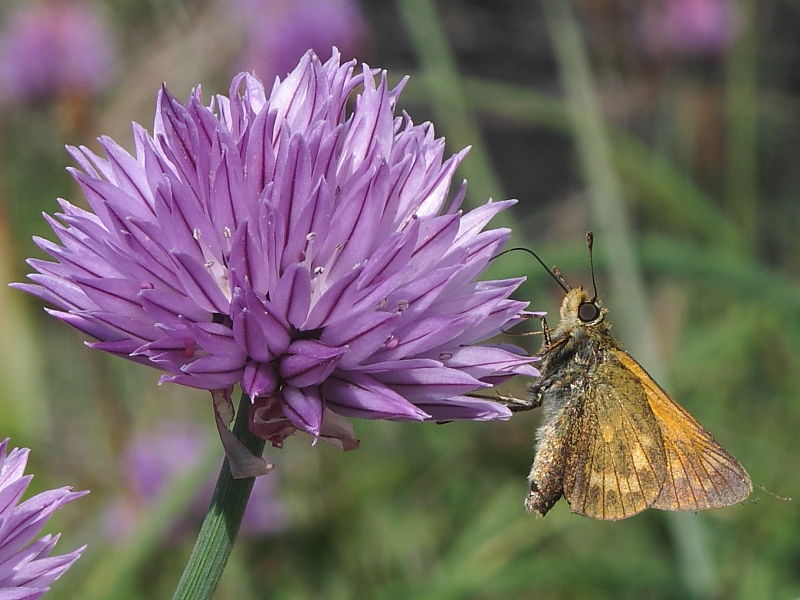
The undersides of both hind and forewings have dark shading with both sexes alike.
The dark shading is one of the features that helps identify this species from the Small Skipper and Essex Skipper.
Other Skipper butterflies are featured in the British Butterfly Gallery and European Butterfly gallery
Life cycle of the Large Skipper butterfly
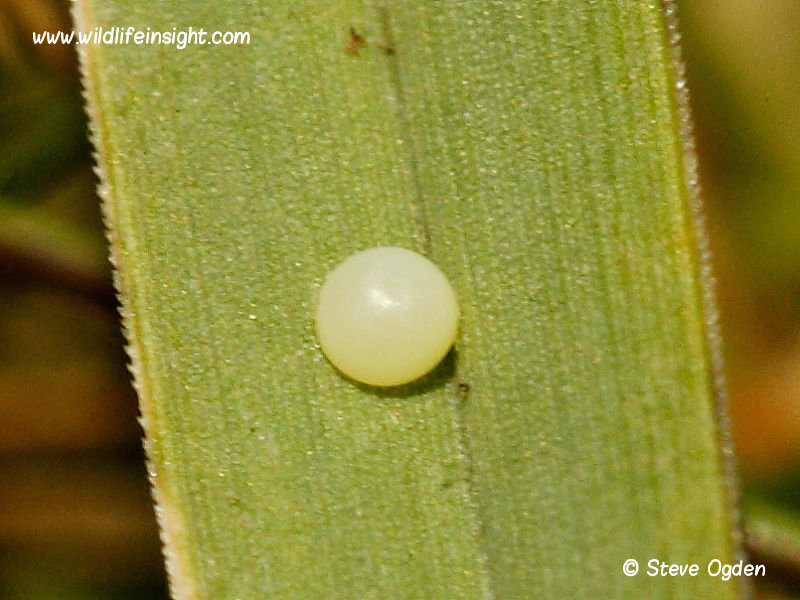
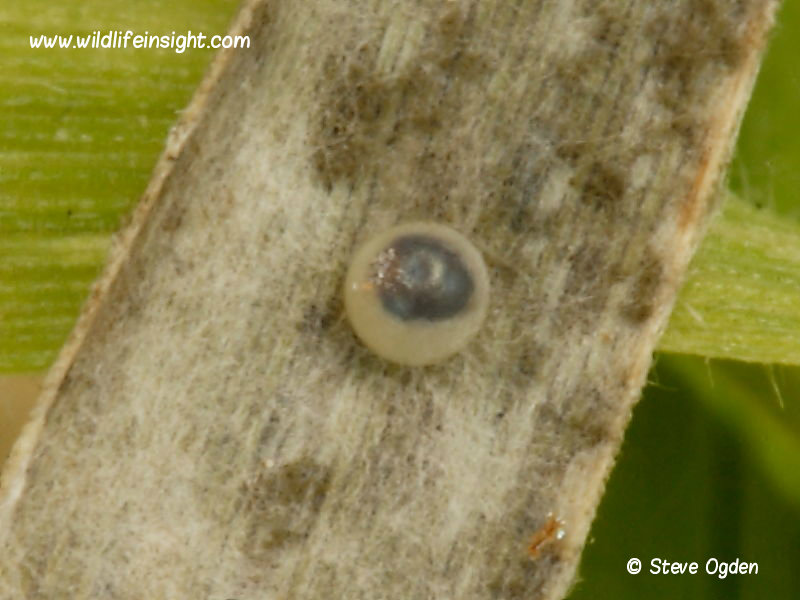
The Large Skipper flies in a single generation from late May to early August.
Single eggs are laid on the larval foodplant: the blades of grasses, particularly Cock’s-foot.
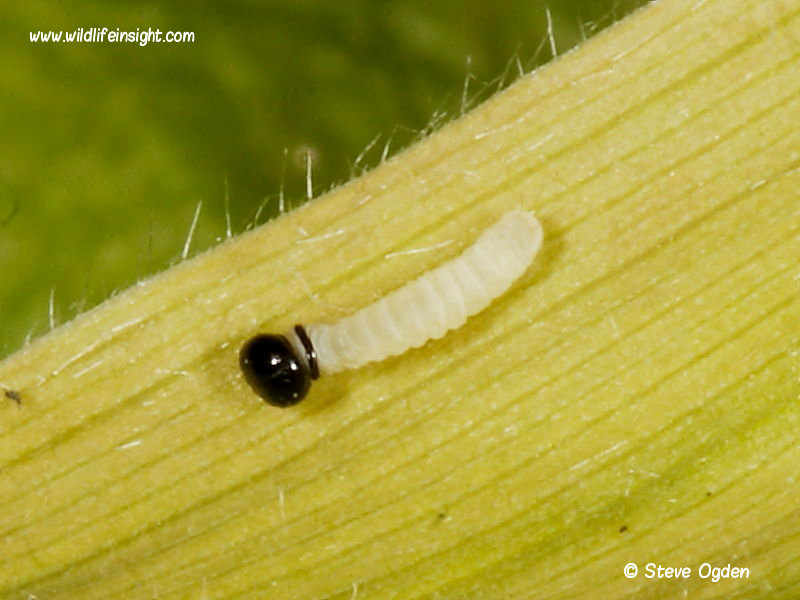
The eggs hatch in 2-3 weeks when the caterpillars are 2.5 mm long, pale with a disproportionally large, jet black head and collar.
Over several moults the body becomes progressively greener and the head browner.
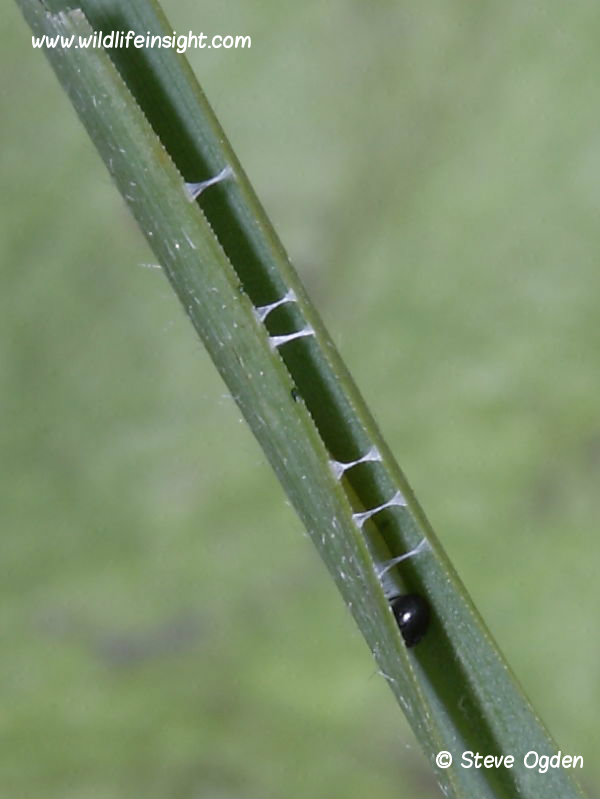
On hatching the caterpillars eat the eggshell.
A protective shelter is then formed by folding the edges of a blade of grass together and securing it together with silk stitches.
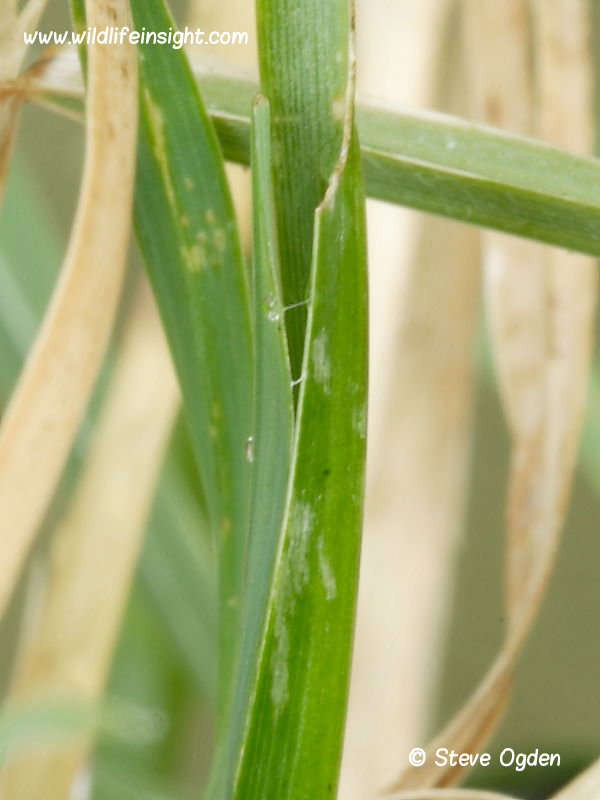
In September, after the fourth moult, overwintering takes place in a hibernaculum formed amongst broad grass blades
The caterpillar becomes active again in March when it may occasionally be found feeding outside the protective shelter during the day
Other caterpillars are featured in species pages and galleries –
Butterflies caterpillar gallery
The Large Skipper Caterpillar
The fully grown caterpillar is 28 mm, pale green with a darker green dorsal line.
The caterpillar featured was unexpectedly seen feeding out of its protective sheathing during the day.
The fully grown Large Skipper caterpillar has a distinctively patterned brown head. The dark brown facial ring helps identify it from the caterpillars of other Skipper butterflies when only the head is visible.
Large Skipper Chrysalis
The mainly black chrysalis is formed inside a cocoon enclosed by grass blades. Awaiting image of chrysalis.
The butterfly emerges in c 3 weeks.